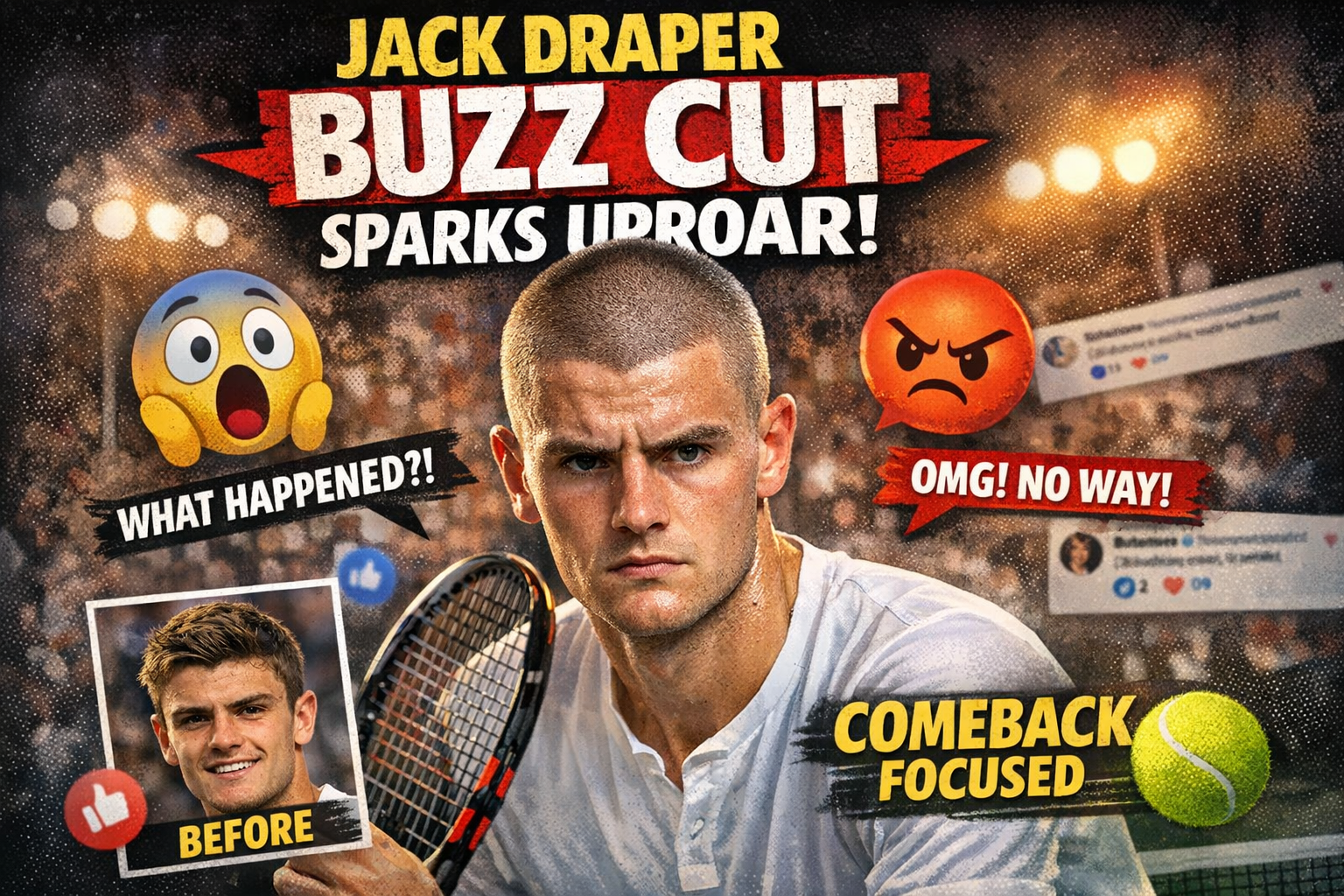-
Alcaraz Shrugs Off Sinner Hype, Reels In Royer And Eyes Khachanov
Carlos Alcaraz returned to Doha after his Australian Open triumph, handled talk of another final with Jannik Sinner and survived a stern test from Valentin…
-
Alcaraz Says Sinner Pushes Him As Both Cruise Into Qatar Quarters
Carlos Alcaraz admitted Jannik Sinner’s presence in draws gives him extra motivation as both men advanced to the Qatar Open quarter-finals with routine straight-set wins.
-
Coco Gauff Says She Will Not Stay Silent On America’s Problems
At a Dubai press conference the 21-year-old Grand Slam champion said she will answer relevant questions about violence and protests, and that she is proud…
-
Jessica Pegula To Lead WTA Effort To Fix The ‘Insane’ Schedule
The WTA has formed a 13-person council led by Jessica Pegula to overhaul the women’s calendar, rankings rules and mandatory-event requirements with player welfare front…
-
Jack Draper Buzz Cut Sparks Online Uproar
Jack Draper returned from injury with a buzz cut that set social feeds alight. Fans reacted loudly to the Valentine’s Day change while the British…
As tennis players, we are all unique and particular, and we want our tennis gear and equipment to be exactly how we want it. That’s why we review the greatest tennis gear and equipment from prominent companies like Babolat, Wilson, Head, Prince, Yonex, Dunlop, Tecnifibre and much more!
We have extensively researched all products, give you our unique view as tennis players, and bring the results into one spot so you can compare and choose which gear is best for you. Select the most relevant criteria from the list below, and you will be directed to the category of your choice.
Rackets By Skill Level
We have compiled a list of tennis racket reviews to assist you in selecting the best tennis racket for your game and skill level. To help you find the perfect tennis racket, we’ve broken them up by ability level below. Choose your ability level below and get started.
Custom Rackets
Whatever level of tennis you play, using the right kind of racket can have a significant impact on your performance. Most custom rackets are hand-assembled to meet your exact specifications for playing your best tennis ever.
If you know what specifications you require, don’t hesitate to contact our custom racket manufacturer partner by clicking the link below. If you need assistance or more information, their team will answer all of your questions and help you find the best racket for you.
On-Court Gear & Apparel
We have compiled a list of the best tennis shoes, bags, sunglasses, elbow braces and tennis apparel from the top tennis and athletic companies listed below. We spend numerous hours researching and reviewing every product. Get ready to hit the courts!
On-Court Equipment
Whether you’re looking for ball machines, balls, hoppers, strings, stringing machines, training aids, or overgrips, we reviewed everything you should ever need to play like a pro!





